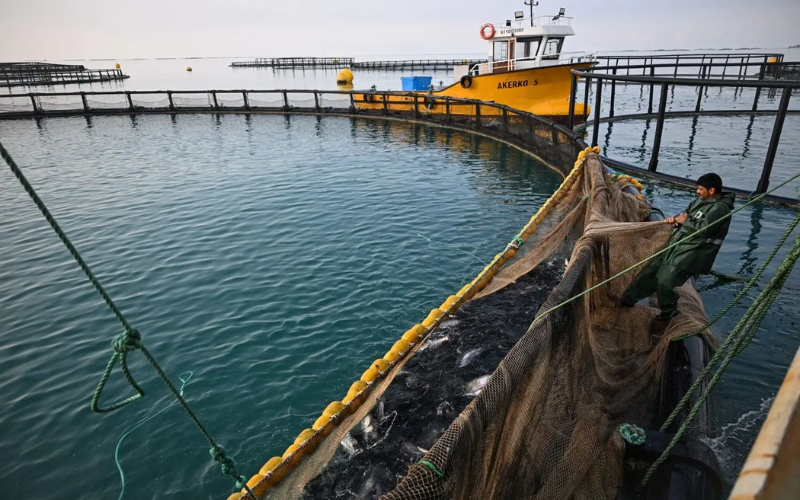Türkiye’s seafood and animal products sector is looking to expand its footprint in Japan, a country that has emerged as a major destination for Turkish tuna and farmed fish such as sea bass and gilt-head bream.
To strengthen ties, an Istanbul seafood exporters’ association, İSHİB, has recently hosted a Japanese buyer delegation in Istanbul. The visit brought around 25 of Japan’s largest importing companies together with Turkish producers for site tours and one-on-one meetings.
At the opening, Trade Ministry official Mehmet Ali Kılıçkaya noted that Türkiye’s exports to Japan rose 11 percent in 2024 to $717 million, with agricultural and food products playing a key role. “Seafood, pasta, olive oil, raisins, fruit juices and tuna are leading export items,” he said, adding that technical barriers in food trade are being addressed to ensure smoother market access.
The trade push is part of Türkiye’s Distant Countries Strategy, launched in 2022 to boost exports to 18 markets across Latin America and Asia-Pacific, with Japan singled out as a top priority. Highlighting the scale of Japan’s food imports, İSHİB Chairman Müjdat Sezer said the country spends $14 billion annually on seafood, $4 billion on poultry and $1.5 billion on dairy products.
Türkiye’s annual exports to Japan in the sector currently average around $100 million. In 2024, Türkiye’s seafood and animal products exports to Japan surged 121 percent to $118 million, driven by tuna, which alone generated $99 million.
Sezer added that farmed fish such as sea bass and gilt-head bream are also gaining popularity thanks to Türkiye’s sustainable aquaculture practices and natural feeding methods. “Since 2024, Türkiye has held a strong and leading position in aquaculture exports to Japan and stands out as a high-potential rising player in other animal product categories,” he added.
Japanese companies are detail-oriented and prefer long-term, trust-based relationships, according to Sezer. “Face-to-face engagement is essential, which is why trade fairs and buyer missions like this one play a critical role. We hope to turn these initiatives into improved export numbers and new partnerships,” he explained.
Beyond tuna and farmed fish, Turkish trout — marketed abroad as “Turkish salmon” — has also been on the rise. In its infancy just a decade ago, production has grown rapidly in line with global demand for salmon. In 2024, Türkiye exported more than 78,000 tons of trout raised in Black Sea waters, 16 times higher than in 2018.
News Courtesy :


